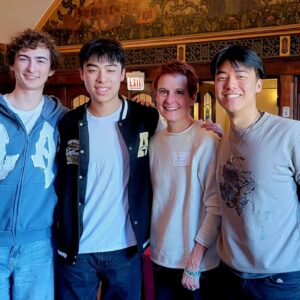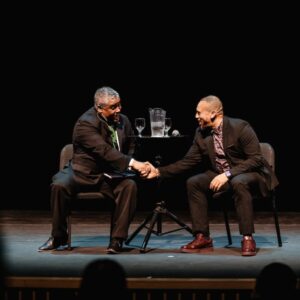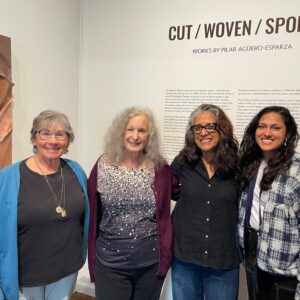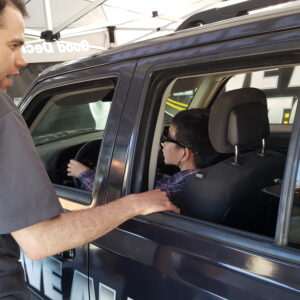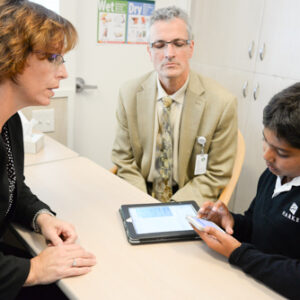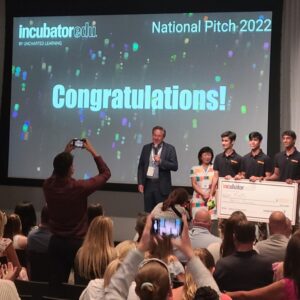Imagine yourself driving down Saratoga Avenue, taking the usual route to the upper school campus, when suddenly the orange low-fuel sign turns on, warning that your tank is low and you need to fill up. But stopping at the nearest gas station does not guarantee the best price. You find yourself scanning the stations that flank the road, looking for the cheapest price.
With the mobile application that Harker students Shefali Netke, Gr. 12, Vivian Wong, Gr. 12, Anika Radiya-Dixit, Gr. 9, Sheridan Jones, Gr. 11 and Kristi Lui, Gr. 11, developed as part of Iridescent Learning’s Spring Technovation Challenge, searching for cheap gas prices would not slow you down.
On April 22, Iridescent held Pitch Night at Microsoft’s Mountain View office, giving students the opportunity to present their ideas in front of venture capitalists. This challenge is a collaboration between Iridescent, the not-for-profit dedicated to providing children in underserved communities with access to cutting-edge science, and Girls in Tech, an organization that aims to empower and promote women in technology.
The team placed third in the competition and was invited to attend the Women of Vision Symposium on May 12.
The five girls worked closely with industry professionals Julie Greenberg and Yasmin Khan to develop their creative mobile app. For eight weeks leading up to Pitch Night, these talented young women worked with the two mentors and participated in hands-on workshops, learning about programming, communication and business fundamentals that were essential in creating a comprehensive proposal.
They created Gas Guy’d, a mobile application that allows drivers to locate accurate, cheap gas prices with an easy-to-use interface and voice activation. Features include GPS directions, real-time prices, a favorites option and detailed station descriptions.
Serving as CEO, Netke presented a four-minute pitch to venture capitalists Katherine Barr, Adeo Ressi and Mendel Rosenblum, and all the teammates participated in a four-minute Q&A after the presentation.
Netke said that Anita Chetty, biology teacher and advisor of Women in Science Technology Engineering and Mathematics (WiSTEM), was instrumental in motivating the group.
“I think that all of us really learned how to work better in a team environment. We do group projects in school, but this environment was different in the sense that there was much more at stake,” Netke said. “The competition also helped a lot in seeing how much work goes into the entire process of developing an application. We did not just do the building stage or just the presentation; we built the application from scratch, developed a business plan, presented the pitch – all the steps.”

